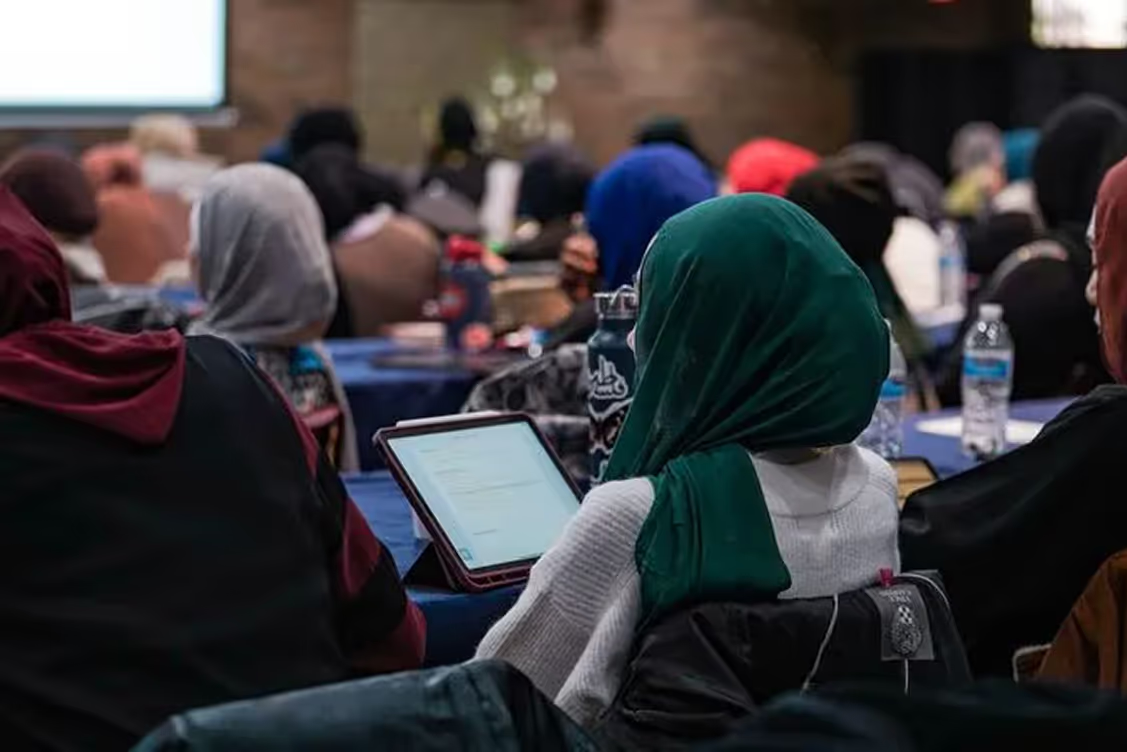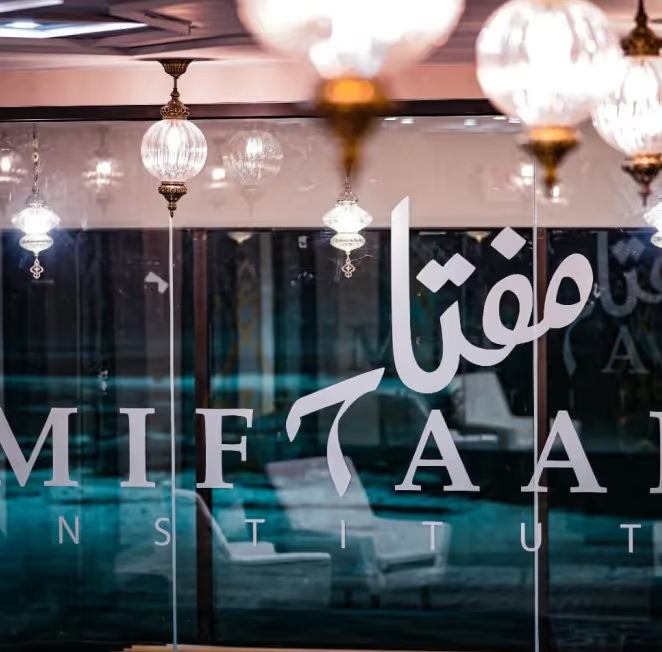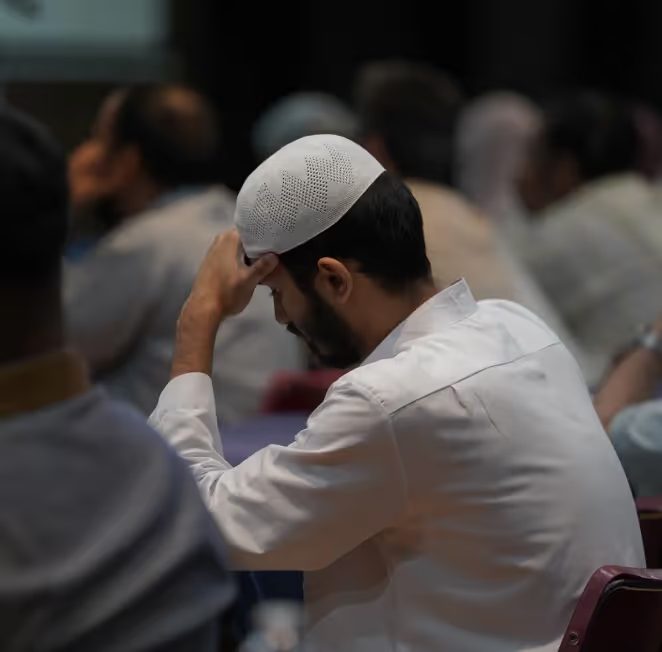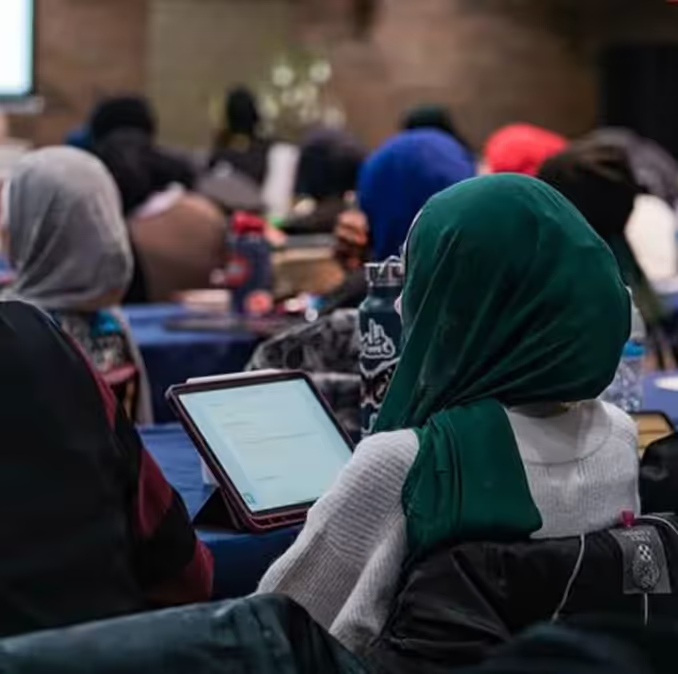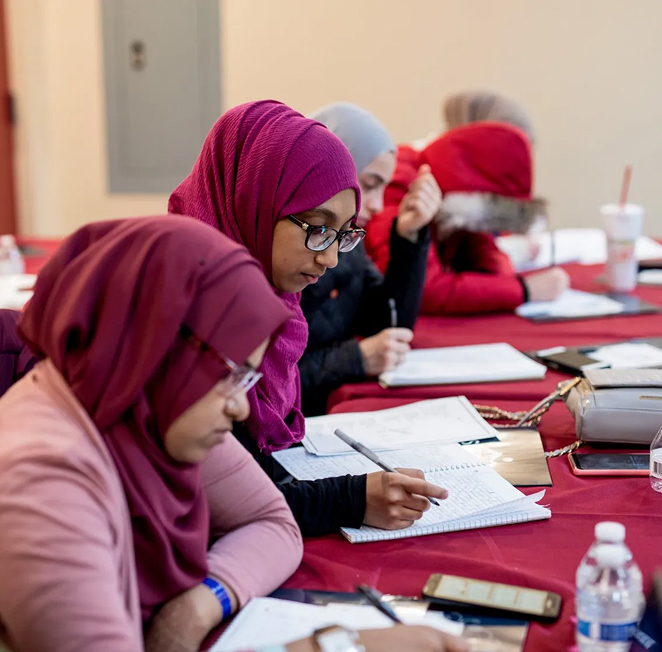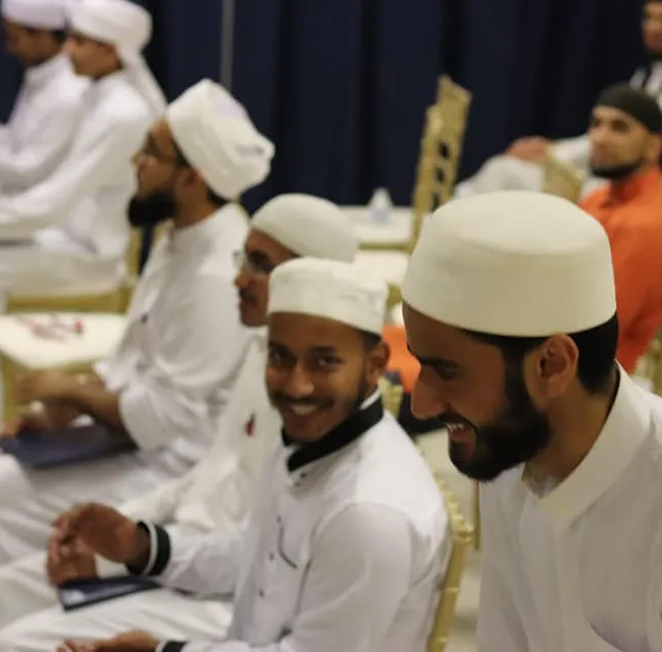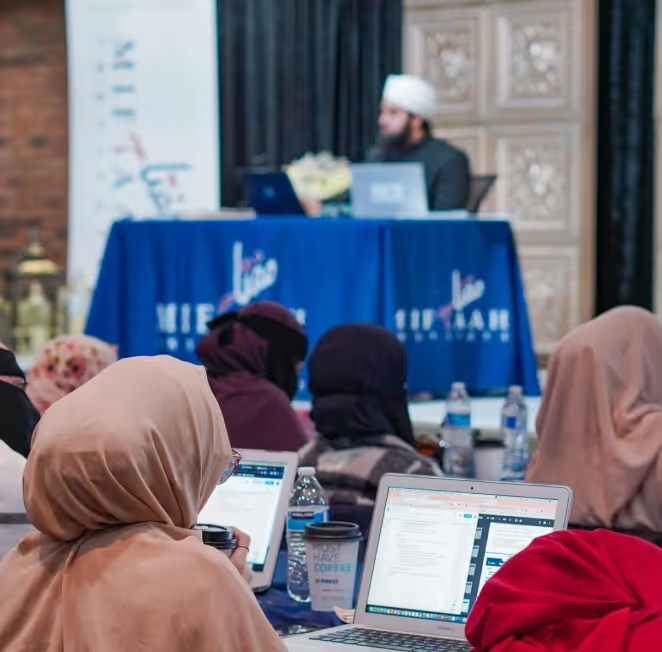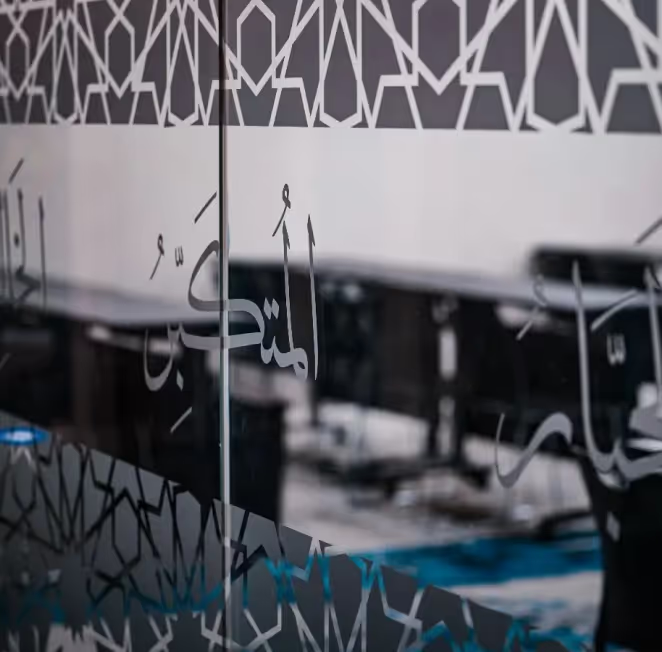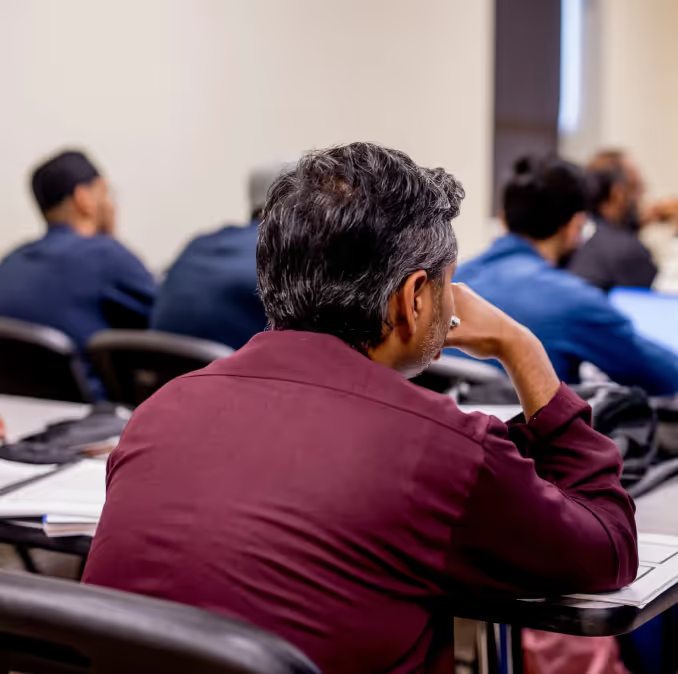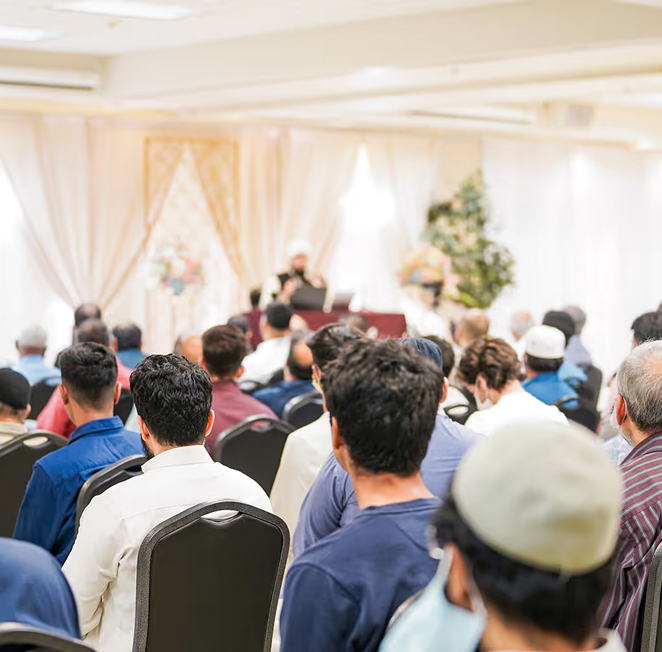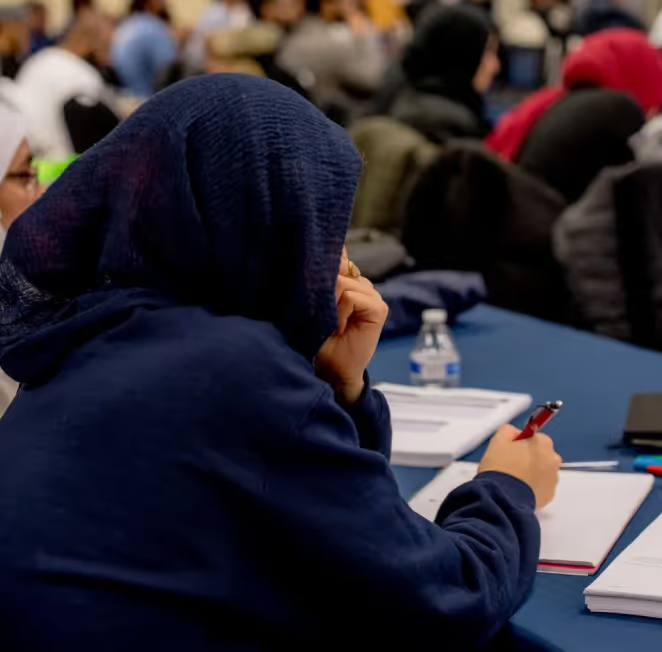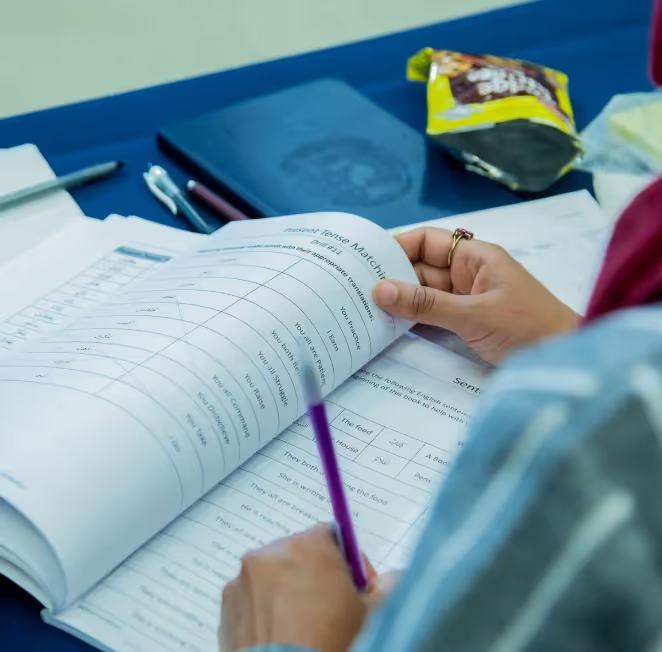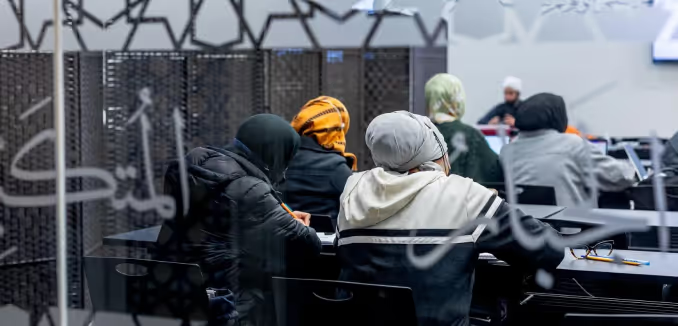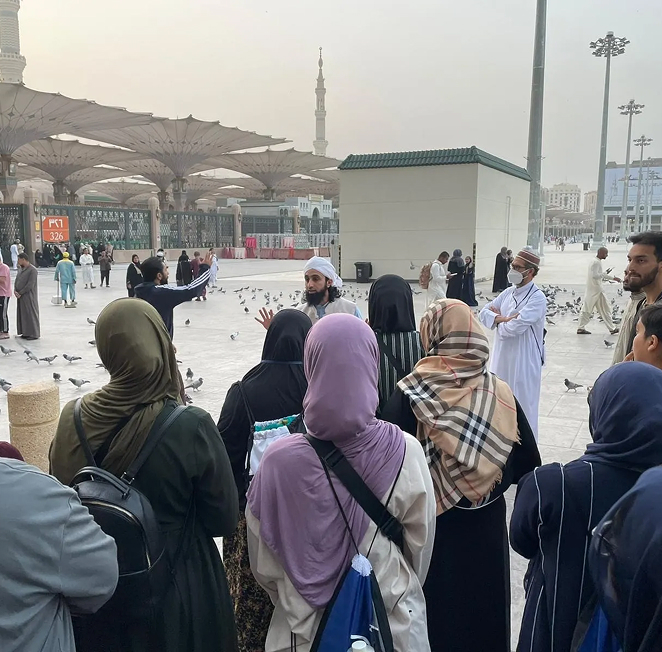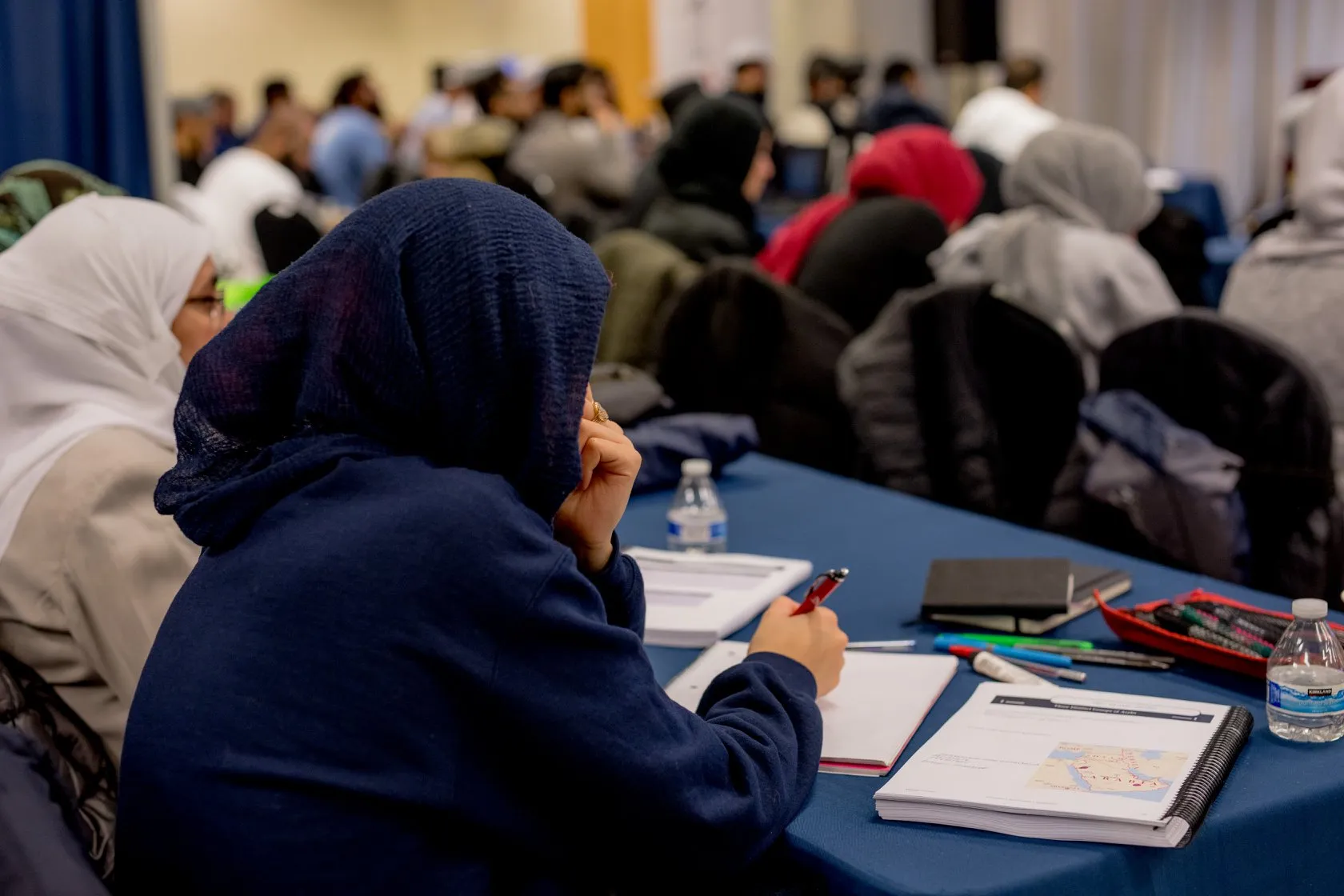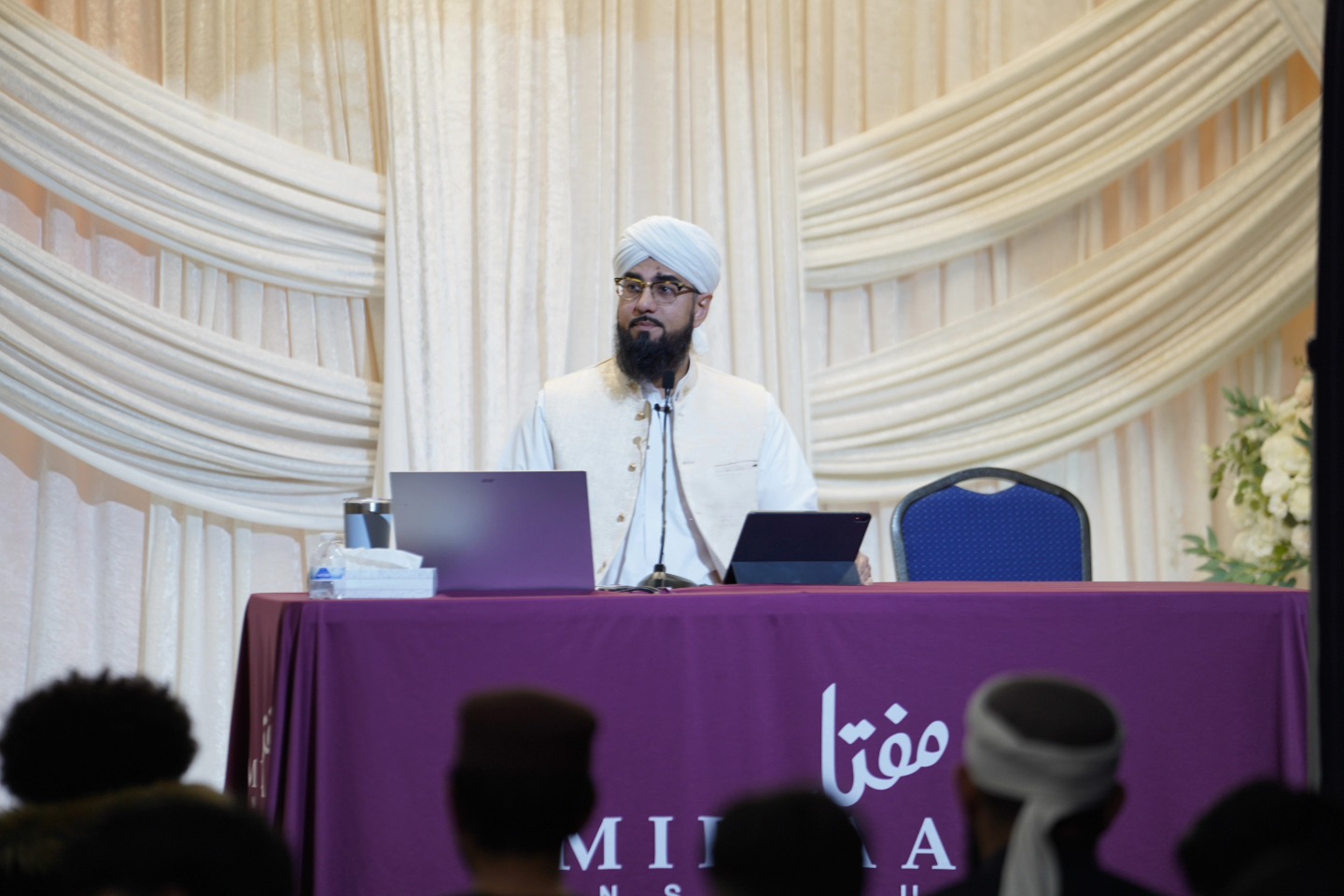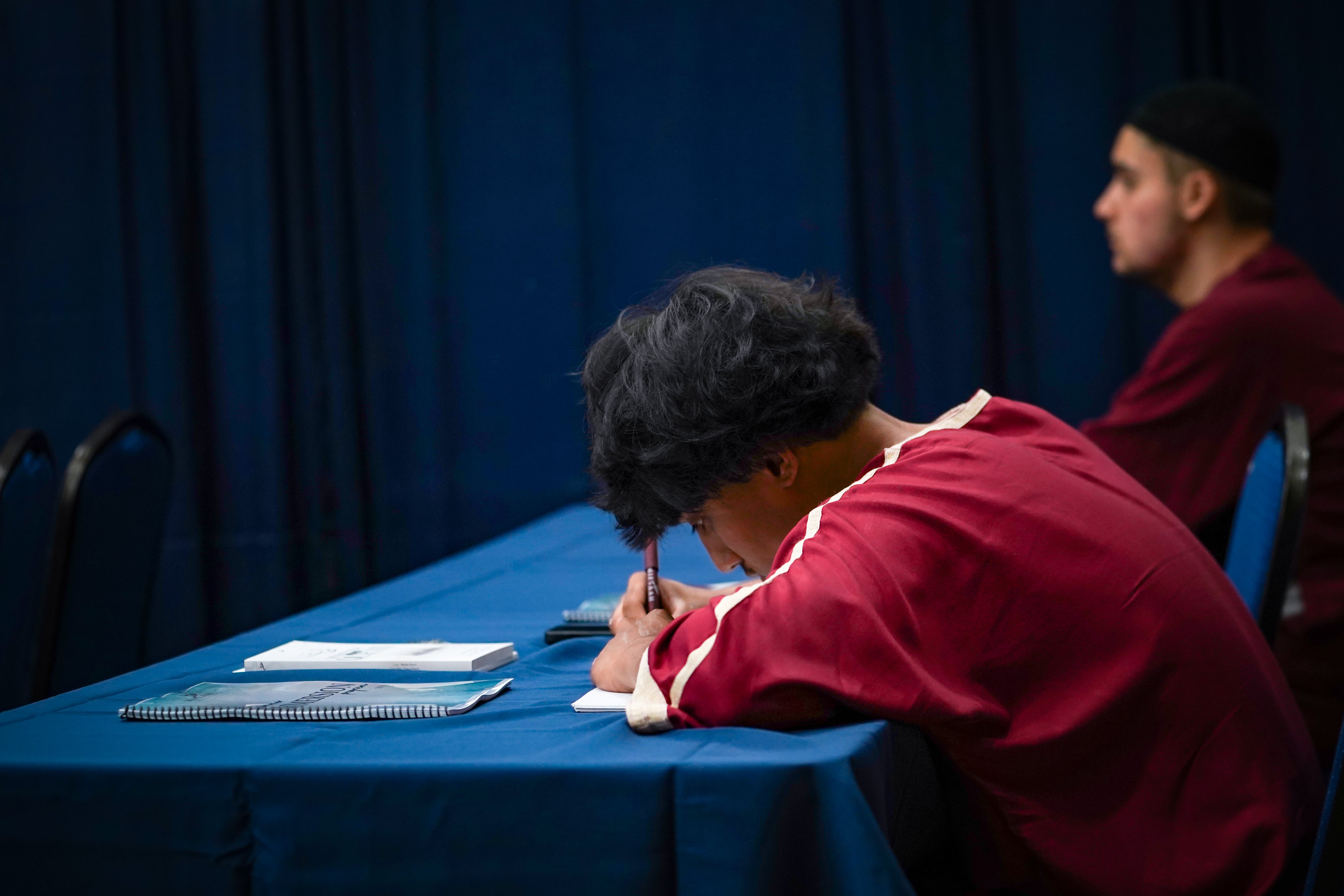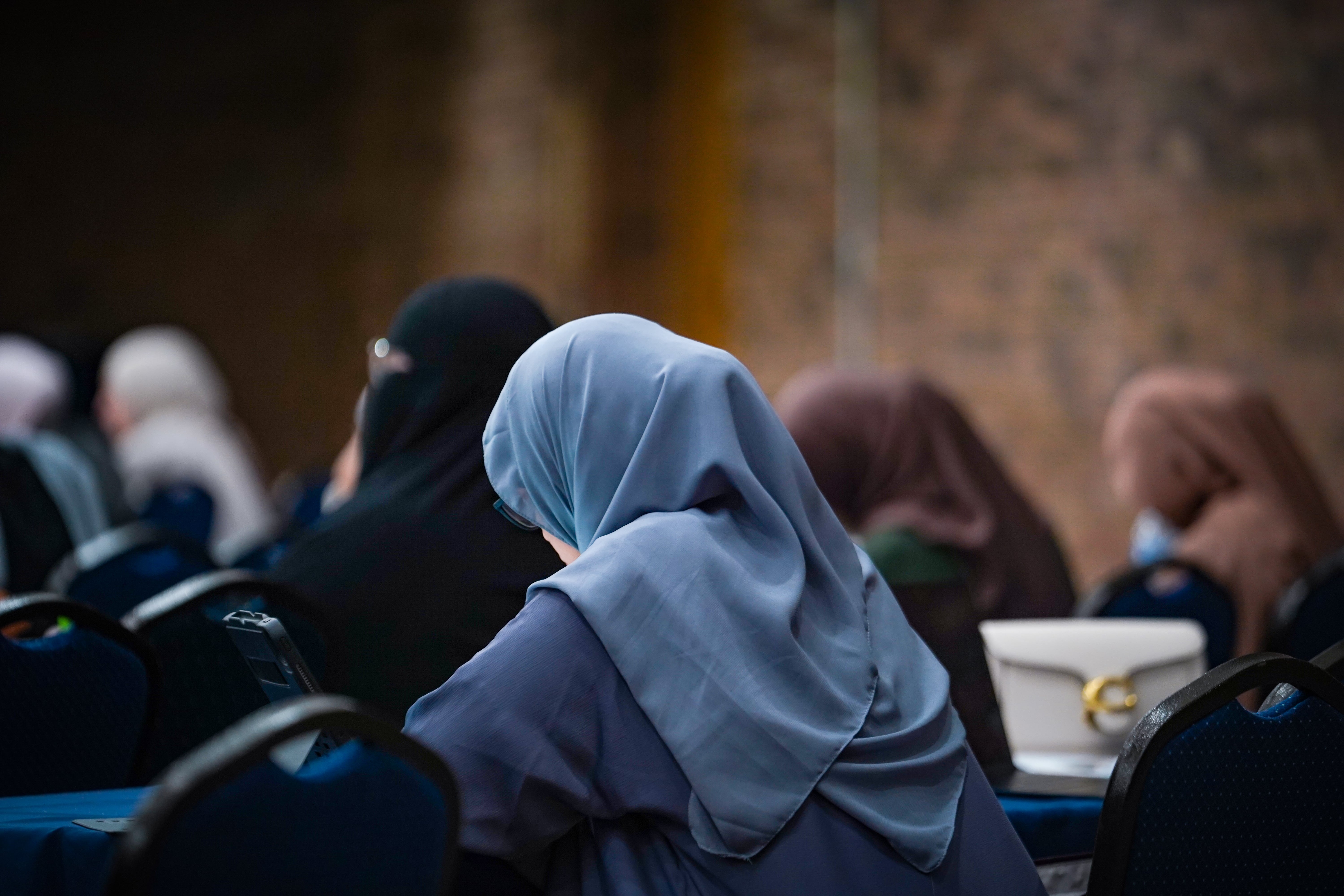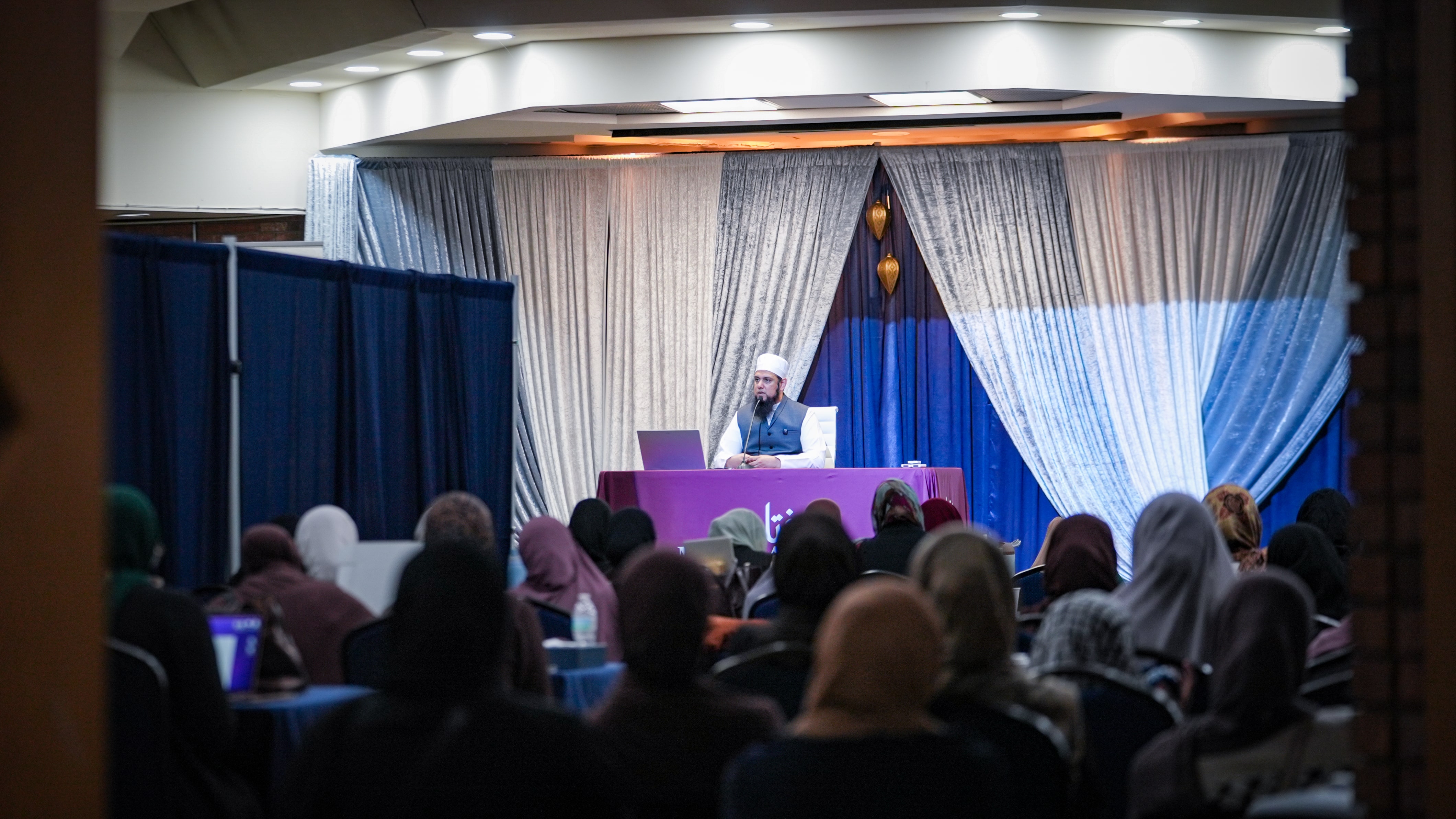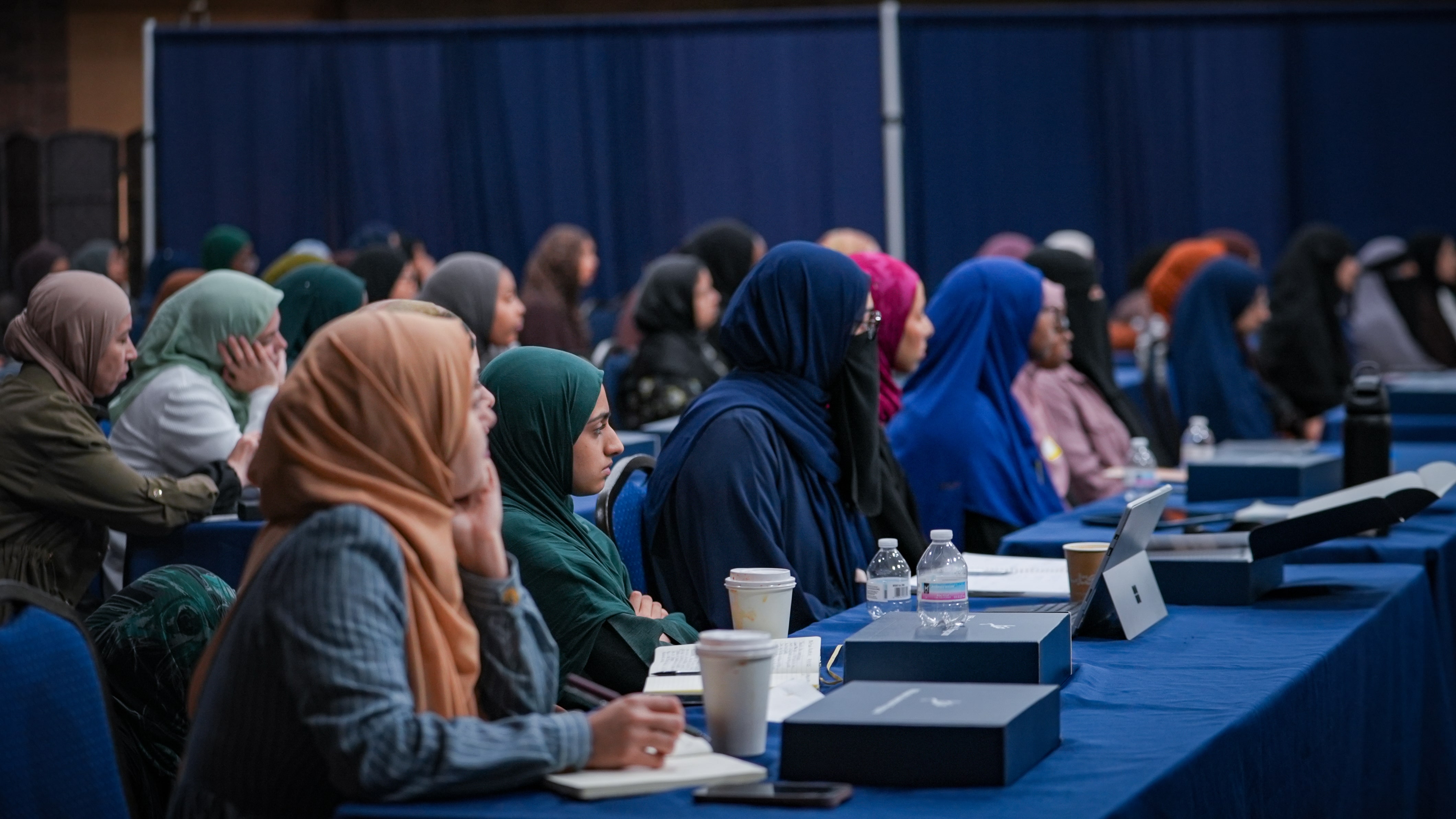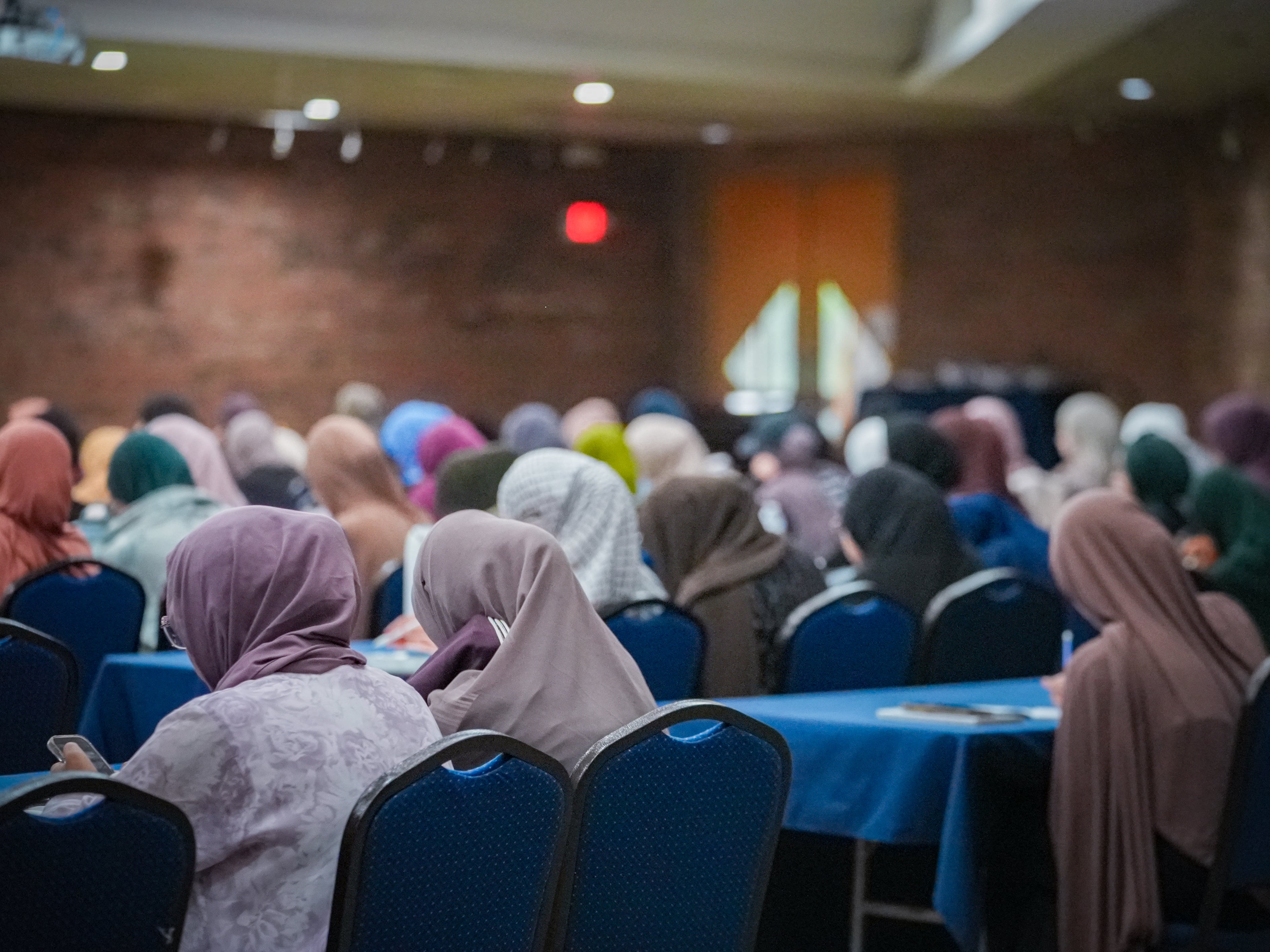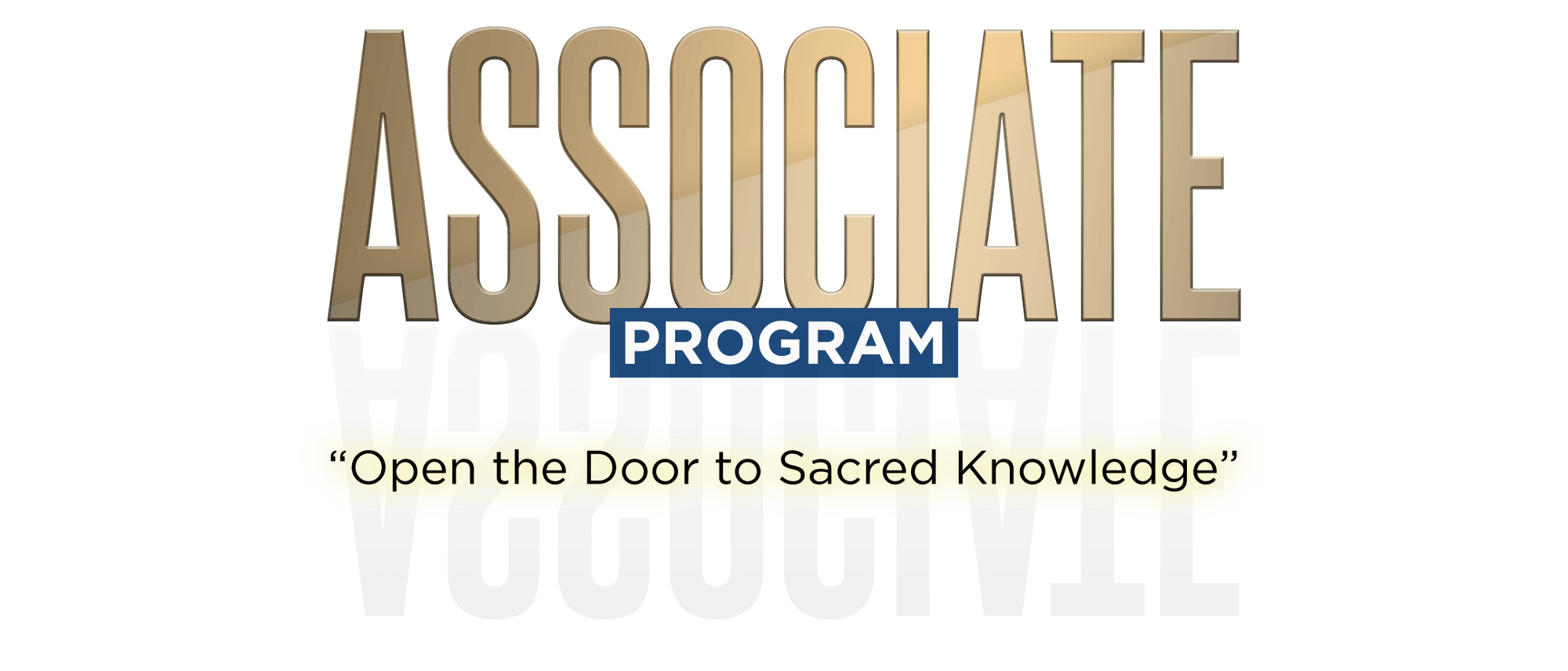



What is
Associate Program
This is the gateway to all the fruits of sacred knowledge. The Associate of Islamic Studies at Miftaah Institute offers a range of classes to get you introduced to the traditional Islamic sciences , taught in an engaging manner to promote personal development and allow you to give back to your community, whilst building brotherhood/sisterhood within the classes.
Students will study Islamic tradition and cover classical scholarly approaches to provide a grounded education of rich Islamic history and the application of Islamic knowledge. These courses establish expertise in Islamic studies and prepare undergraduate students for further academic study.
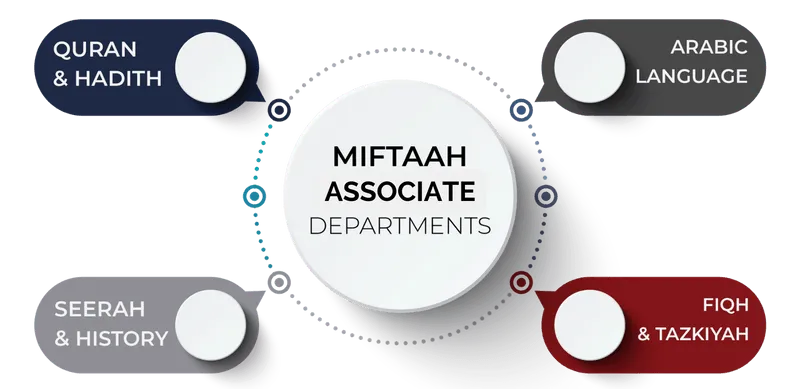
Subjects
Fall SemEster
Year 1
Beginners
Associate Program
Course Length:
1 Year
Text Used:
Miftaah Arabic Grammar & Morphology 101
This course provides students with a needed base understanding of how Arabic root letters are conjugated to create different words that give information about the subject and action of a sentence. By the end of the course, students will know how to conjugate verbs in various tenses, determine base letters from non-base letters, and identify verbal patterns that convey information about the number, gender, and voice of the subject of a sentence. Through rigorous repetition of the various patterns as applied to different verbs, newly learnt concepts are applied to ensure complete comprehension of the material covered.
First we will start with the 4 properties of a word, then look at fragments, and finally study the different types of sentences found in the Arabic language.
Second will study the different sarf families, learn the implications of each family, and understand word meanings based off of their unique patterns.
Third, we will begin Irab studies with grammatical analysis of simple sentences and then move to the Quran and focus on complex structures and ayahs.
Course Length:
Text Used:
Miftaah Quranic Exegesis: Juz Amma
Like Introduction to Hadith, this course allows students to try their hand at applying the grammatical concepts learnt in other courses to analyze and interpret Islamic primary sources. The course methodically guides students through the last Juz’ of the Qur’an and gives students experience translating the uniquely dynamic and engaging style of the Qur’an’s Arabic into English. Along with simple translation, students will learn to recognize and appreciate the thematic coherence between verses and chapters, the deeper meanings of Arabic words, grammatical nuances, the historical context of the revelation of various ayahs, and Qur’anic commentary based on Hadith and the authoritative interpretations of the recognized exegetes of the first generations of Islam. Students are also encouraged to develop and discuss personal reflections on the Qur'anic text and lessons for their contemporary times.
Course Length:
Text Used:
Miftaah 's 40 Hadith of Imam Nawawi
This class is an introduction to the comprehension of primary religious sources in their original language and forms the basis of one’s ability to interpret, analyze, and apply Islam’s holy texts. Using the concise and to the point sayings of God’s Messenger (pbuh) collected in the classical text The 40 Hadith of Imam Nawawi, students will begin to utilize concepts learned in their morphology and syntax classes to understand the Prophet’s (pbuh) words. A discussion of the grammar and vocabulary included in each hadith will be accompanied by a lesson on the hadeeth meaning and a discussion of its application in our place and time.
Course Length:
Text Used:
Miftaah Sirah al-Nabawiya
In this course, students will cover the events which occurred in the life of the Prophet SAW from his birth to the end of his life. Students will explore the challenges which the Prophet SAW faced and how he dealt with them. They will discuss valuable lessons which can be applied from the life of the Prophet SAW and his companions.
Course Length:
Text Used:
Miftaah's Islamic Jurisprudence: Introduction to Fiqh, Purification, and Salah
This course introduces students to the rulings regarding two of the five pillars of Islam: the declaration of faith (Shahādah) and ritual prayer (Salāh). The latter includes a study of ritual purification (Tahārah). The course introduces relevant Islamic theological concepts and covers topics that include the meaning of jurisprudence (Fiqh), rulings related to ritual prayer, the etiquette of supplication, and the spiritual dimensions of worship. The course primarily focused on the rulings and understandings of the Hanafi school of thought, but gives reference to differences of opinion amongst the schools.
Course Length:
Text Used:
Miftaah Institute: Etiquettes of a Seeker
One scholar states "Etiquettes have to do with how you are externally and internally". In this course, the instructor outlines the ways in which one develops their etiquettes in the pursuit of knowledge. Imam Al-Bukhari’s Sahih is well known, however he has also written a dedicated work on mannerisms titled Al-Adab Al-Mufrad. In this class, we will focus on a select number of ahadith of the Prophet صلى الله عليه وسلم from this monumental work that will help us grow in our spiritual development through perfecting our character.
Winter SemEster
Year 2
Associate Program
Intermediate
Course Length:
Text Used:
Miftaah Arabic Grammar and Morphology
This course provides an in depth look into the foundation of understanding written classical Arabic, Arabic syntax. The course introduces students to the concept of linguistic case and surveys the various shades of meaning lent to nouns by the different cases. The course also introduces to the many ways active participles and verbs affect the meanings of nouns to give them different shades of meaning. Understanding the concepts in this course is a must for understanding any classical Arabic text.As with Arabic 101I, preparation for class and homework are essential so that students may devote in-class time to communicating in the language rather than talking “about” the language. Upon completion, students will be able to formulate sentences that involve verbs and subjects of different numbers, gender, and voice, will have a working knowledge of some of Arabic’s most common and basic noun forms, and speak Arabic on a beginner’s level.
Course Length:
Text Used:
Miftaah's Quran Exegesis: Surah Maryam
Complete translation and meaning of specific chapters are covered in this course. Special focus is given to the syntax and etymology of the words and structure used in the verses of the Holy Qur’an. Along with the translation, the course also incorporates interpretations of selected verses which enable the students to fully understand the meaning of the Qur’an.
Course Length:
Text Used:
Miftaah 's 40 Hadith of Imam Nawawi
This class is an introduction to the comprehension of primary religious sources in their original language and forms the basis of one’s ability to interpret, analyze, and apply Islam’s holy texts. Using the concise and to the point sayings of God’s Messenger (pbuh) collected in the classical text The 40 Hadith of Imam Nawawi, students will begin to utilize concepts learned in their morphology and syntax classes to understand the Prophet’s (pbuh) words. A discussion of the grammar and vocabulary included in each hadeeth will be accompanied by a lesson on the hadeeth’s meaning and a discussion of its application in our place and time.
Course Length:
Text Used:
An Introduction to the Sciences of the Qur'an by Sh. Furhan Zubairi
The knowledge of Ulum al-Quran, or ‘The Sciences of the Qur’an’ deals with the knowledge of those sciences that have a direct bearing on the recitation, history, understanding and implementation of the Qur’an. Students will learn the causes of revelation the knowledge of Makki and Madani revelations (asbab an-nuzul), the knowledge of the various forms (ahruf) it was revealed in, the understanding of its abrogated rulings and verses (nasikh wal-mansukh), the knowledge of the various classifications of its verses (muhkam and mutashabih, ‘am and khas, mutlaq and muqqayad, etc.) and the knowledge of its interpretation (tafsir).
Course Length:
Text Used:
Introduction to Hadith Studies by Sh. Furhan Zubairi
This course introduces the student to the mustalah al-hadith. Classification of a hadith is based upon the chain of narration, context, strength of the narrators, number of narrators, etc. This course covers the very basic definitions pertaining to the classification of the hadith. The student will be able to comprehend the basic and common terminology used to classify hadith upon completing this course.
Course Length:
Text Used:
Miftaah PPT and Notes
Principles of Islamic jurisprudence, also known as uṣūl al-fiqh are traditional methodological principles used in Islamic jurisprudence (fiqh) for deriving the rulings of Islamic law. The traditional theory of Islamic jurisprudence elaborates how the scriptures (Quran and hadith) should be interpreted from the standpoint of linguistics and rhetoric. The course reviews the methods for establishing the authenticity of hadith and for determining when the legal force of a scriptural passage is abrogated by a passage revealed at a later date. An exposition of the methods by which the rules of Fiqh are deduced, covering the sources for Islamic law, rules of interpretation, commands and prohibitions, the consensus of opinion, and abrogation.
Course Length:
Text Used:
Miftaah Prophetic Stories
In this course, it will cover the various stories of the Holy Quran, as well as cover permanent arabic vocabulary. The stories of the prophets and all the events in their lives have been supported by the Qur'anic Verses and the Sunnah (traditions) of the Prophet (S). The systemic narratives of the Stories of the Prophets have been written in chronological order which renders a historical style to the course.
Summer SemEster
Year 3
Associate Program
Advanced
Course Length:
Text Used:
Miftaah Arabic Grammar and Morophology
This is the final and most advance course book in Arabic Morphology in the curriculum. After revising all rules in detail, which govern the law of Arabic Morphology, students learn the various scales of the Arabic verbs (baab). The method through which words are derived from their original pattern (taleelaat) is discussed in detail and extensively. Memorization through implementation of exercises allows students to recognize the verbal constructions. Upon completion, students are able to differentiate and identify the scale of every verb in the Arabic language.
Course Length:
Text Used:
Miftaahh's Quran Exegesis: Surah Isra
This course covers the complete translation of these specific chapters in the Qur’an. This selected chapter we will cover is the 17th surah (Surah Isra) of the Holy Quran. Special focus is given to the syntax and etymology of the words and structure used in the verses of the Holy Qur’an. Along with the translation, the course also incorporates interpretations of selected verses which enable the students to fully understand the meaning of the Qur’an.
Course Length:
Text Used:
The Marriage Handbook by Mufti Aasim Rashid and The Money Handbook by Mufti Aasim Rashid
This course covers the marriage proposal, the dower, the announcing of the wedding, feast, the rights of the husband and wife, many contemporary issues and some evil customs that have crept into the marriage ceremonies and feasts throughout the Muslim world. Conclusions are consistent with the Quran and Sunnah and not biased toward any school or culture.There are many questions we have as it pertains to finance in our day and age. What does Islam say about money? What is the role of currency? Can we invest in stocks? All these questions and more will be answered this course.
Course Length:
Text Used:
Al-Aqida Al-Tahawiyya by Imam Abu Ja'far al-Tahawi
A clear and concise representation of the creed of the Ahlus-Sunnah wal-Jama’ah in relation to Allah Most High, His divine attributes, His books, His messengers, His angels, the Day of Judgment, destiny, and life after death will be presented to the student. Covering the most basic tenets with selected commentary, the course will address contemporary issues in detail. Essentially, the course will cover material which all Muslims need to know, believe and inwardly understand with respect to Islamic creed.
Course Length:
Text Used:
Riyad As Salihin by Imam Al-Nawawi
Riyad As Salihin: The Gardens of the Righteous, is one of the most famous works of Imam Nawawi. This collection of authentic hadiths can be briefly defined as a book of enhancing morals, mannerliness, encouraging goodness, and warning against the evil. This work consists of the wisdom of the noble Prophet, peace and blessings be upon him, setting the criteria about the manners to be observed by individuals. Since the time it was published, Riyad As Salihin has been a must read on the way to deepening in Islamic teaching. This work we present to you with pride is an abridged version of the full compilation.
Course Length:
Text Used:
Miftaah PPT and Notes
Imam al-Tirmidhi's Al-Shama’il al-Muhammadiyya contains 414 Hadith that together present a detailed description of the moral, physical and spiritual qualities of the Prophet Muhammad ﷺ.This course is designed to give you the following:Deep knowledge of the character, behavior, and personal qualities of Allah's Messenger ﷺ.Understanding of why knowledge of the character of the Prophet ﷺ is central for all areas of the religion.Enriched appreciation for the world and the worldview of the Companions رضي الله عنهم and the Early Generations of Muslims.Renewed and strengthened love for Allah's Messenger ﷺ, knowledge of him, and desire to see him in this life and the next.
program Instructors
Program Schedule
Program Information
Registration
Limited Spots Available
Associate Program
$350.00/semester or $530.00/year
Enroll nowRegistration ClosedApply for Financial Assistance
Click the link below to apply for financial tuition assistance or to pay your tuition in instalments payments.
Guidelines for Graduation
The Miftaah Lite Seminary Curriculum is centered around 6 Core Subjects
One of the main factors that distinguish our program is its graduation requirements. To complete the program and graduate, students must receive a passing score for each course. To complete the Miftaah Lite program, the student must complete at least 2 courses per semester for a total of 8 courses over two years.
A total of 8 course courses are needed to qualify for the Miftaah Lite certificate. After completing 8 courses of the Lite program, students are encouraged to transfer to the Associate Program located at the Miftaah Campus.
"The Intensive was such a fulfilling experience and I can't wait to sign up for more programs."
This was my very first intenstive with Miftaah Institute and it was absolutely amazing mashaAllah. It was very educationI initially signed up for the Hadith Intensive just to try out a Miftaah program, not really knowing what to expect for the topic being Hadith. Alhamdulilahthe Intensive was such a fulfilling experience and I can't wait to sign up for more programs at Miftaah inshAllah! I enjoyed learning about the history of Hadith and the rigorous way Hadith have been vetted and preserved. It really opened my eyes to our rich Islamic history and strengthened my conviction of being Muslim Alhamdulilah.
Amena S. , Dayton, OH
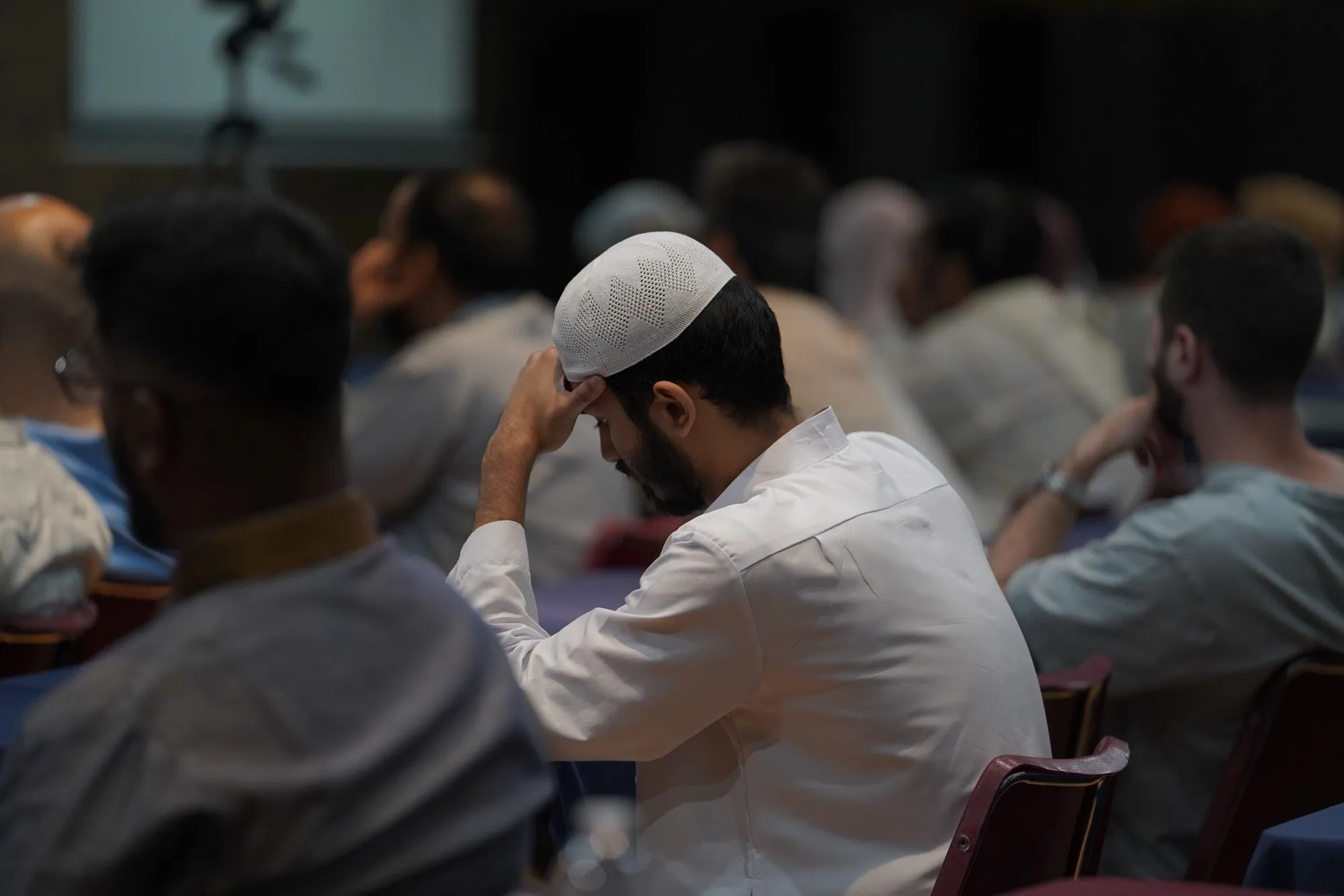
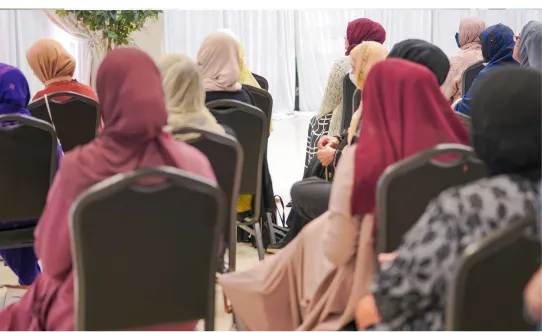
"I enjoyed the intensive a lot".
I enjoyed the intensive a lot. It definitely met its objective - to increase the love of the sunnah, of Prophet Muhammad SAW, to have more confidence in our Islamic tradition.
The event was well organized and the instructors were all engaging and passionate about the subject Allahumma barik lahum, which has energized and encouraged me to continue my ilm journey! All and the content was well-taught so it could be easily absorbed. Each of the shuyookh took their time to go though the various topics and gave an in depth analysis on different ahadith and its history. It’s definitely one of those events that make you feel closer to Allah, His Messenger ﷺ and the love of obtaining knowledge.
Maiza A., Canada
Learn more
Not ready to enroll but want to learn more?
Download the program catalog to review program details.
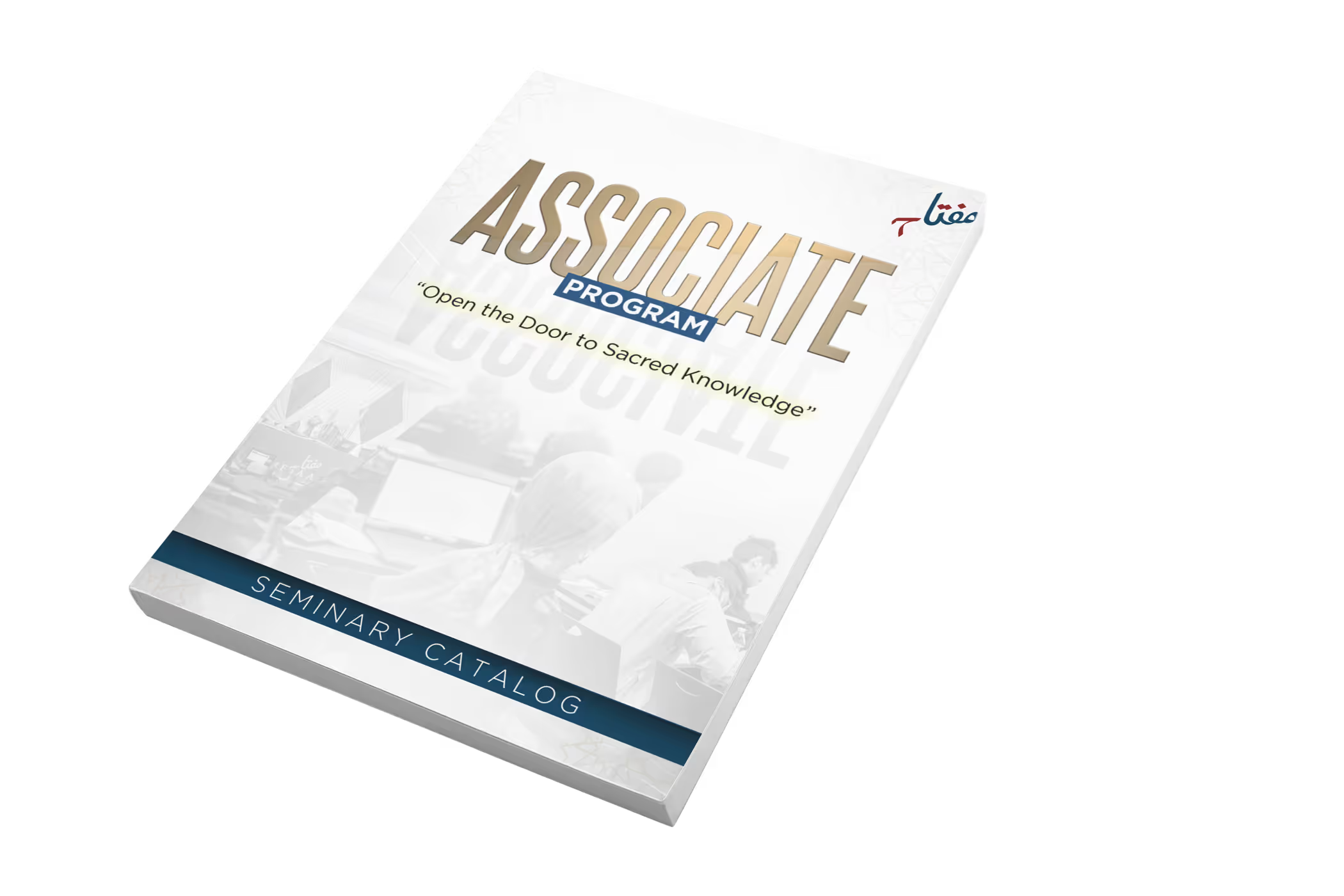
Program Highlights
frequently Asked Questions
What payment options are available?
Tuition payments may be made per semester or per year.
Is the Associates Program open for High School Students?
The program is open to students that are 17 and older.
Where are classes held?
Classes are held at the Miftaah Campus located at 11200 East 11 Mile, Warren, MI 48089.
What course material is provided?
Miftaah will provide course textbooks, and lifetime access to the student portal, including recordings, PowerPoints, and course material.
Will there be an online option?
No, the Miftaah Associates Program will be only available onsite.



.png)







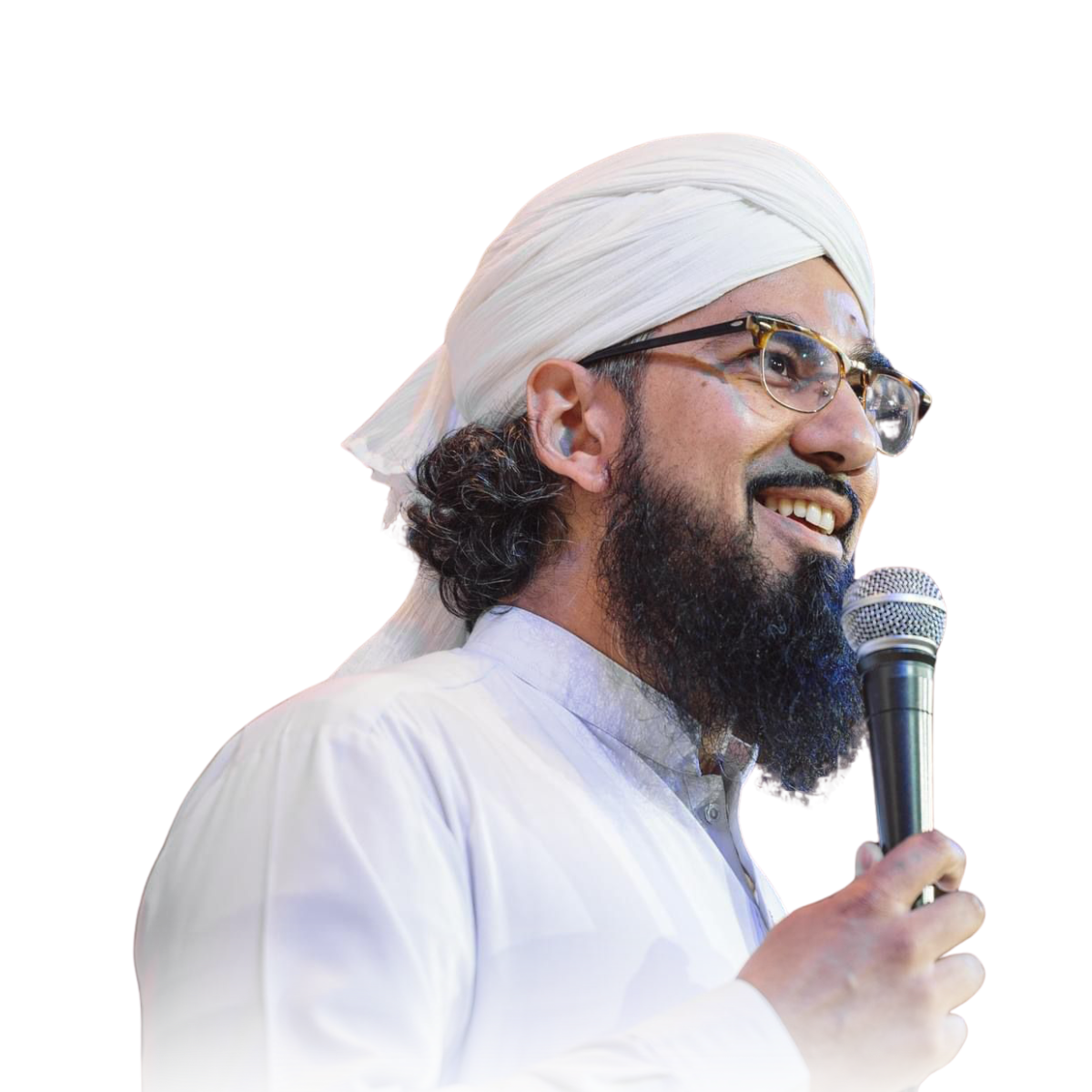
.webp)








